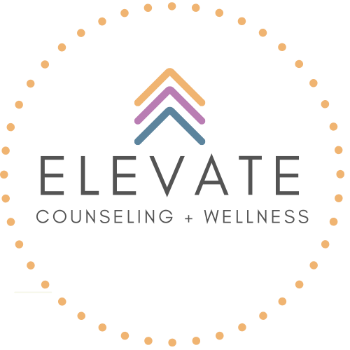You’ve heard about the benefits of therapy. Maybe a friend or family member has been raving about how much therapy is helping them. Perhaps you have this nagging feeling that you should talk to someone.
So how do you know the best time to go to therapy? How do you know when enough is, well, enough? And is there ever a wrong time to seek help? Let’s get into the top indicators suggesting therapy could help you.
Your Problems Are Getting Worse (Or They’re Staying The Same)
Are you noticing that life is making you more depressed, anxious, or insecure than usual? Are you going through a serious life change that’s making it impossible to feel balanced or confident?
Of course, we all face problems in this life. Problems are inevitable. However, many mental health conditions can worsen if you don’t attend to them. Likewise, if you don’t know how to attend to them, you risk unnecessary suffering.
Even stagnation could indicate that it’s time to consider therapy. Maybe, on the surface, everything is going “fine,” but you’re still feeling restless or dissatisfied. As humans, we thrive when we are in the space of personal growth. If you don’t feel like you’re in that space, it might be time to seek professional help.
Your Relationships Are Suffering
Research shows that we are social creatures. Our relationships play a fundamental role in defining our self-esteem and quality of life. We all value being good partners, friends, parents, and coworkers. Yet, sometimes, we face challenges in attempting to meet these goals. Problems in relationships could be a telltale indicator that you need support.
While therapy doesn’t “fix” relationship problems when you're the only one attending, it can help you with key barriers affecting the dynamic between you and your loved ones. These barriers typically include:
-
Poor communication
-
Boundary conflicts
-
Trust issues
-
Clashing values
-
Decisions related to staying in the relationship
-
Significant life transitions
You’re Avoiding, Numbing, Or Denying Your Feelings
LIke it or not, we all have emotions. Emotions are what make us human, and as a functioning human, you need to learn how to cope with them!
Most of us don’t grow up learning how to identify and manage emotions. As a result, we react to difficult emotions in maladaptive ways that might include:
-
Numbing or escaping (substance use, compulsive eating, gambling, shopping)
-
Aggression and hostility
-
Isolation and withdrawal
-
Lying to self and others
-
Intellectualizing (using reason and logic to downplay the emotional impact of feelings)
-
Self-harm and suicidal behavior
Your feelings are a compass guiding your daily experiences. Learning how to identify and accept them for what they are can help you live a more meaningful life.
You’ve Tried Other Self-Help Or Psychiatric Methods
You’ve done your Internet research. You’ve read a few (or many) self-help books. Maybe you’ve started taking an antidepressant for your mood. Perhaps you’ve learned all about the fabulous virtues of self-care, and you signed up for a yoga class to decrease your anxiety.
All of these methods can be fantastic resources. However, if you’re intervening in all these different ways, and nothing is landing, you risk feeling worse.
Therapy isn’t just about teaching you how to feel better (though it can be a large part of the treatment). Therapy offers the unique advantage in providing unconditional support, guidance and encouragement, and nonjudgmental feedback throughout your journey.
Many people feel ashamed or guarded in sharing their struggles with others. Rejection and criticism can make it challenging to believe it’s safe to be vulnerable. In therapy, you can learn new ways of engaging with yourself and the world- while also knowing you have a personal cheerleader who’s going to root for you every step of the way.
You Want To Learn More About Yourself
You don’t need a specific diagnosis or pressing concern to benefit from therapy. Some clients simply want to deepen their sense of self-awareness.
We all have subconscious patterns and behaviors. Some of these actions are advantageous for our emotional well-being. Others are far more detrimental.
Maybe you engage in a particular behavior, and you aren’t sure why you do it. Therapy can shed insight into who you are and what you do. At first, this insight might be painful! We are creatures of habit, and many of us resist change (even when we know change is necessary).
With that in mind, by learning more about yourself, you can feel more empowered to break patterns and approach your life circumstances differently.
When Is The Best Time To Go To Therapy?
The best time to go to therapy is when you’re ready for a change. Whether it’s an internal or external change, therapy can help you find the insight and encourage you to make positive steps towards your future.

